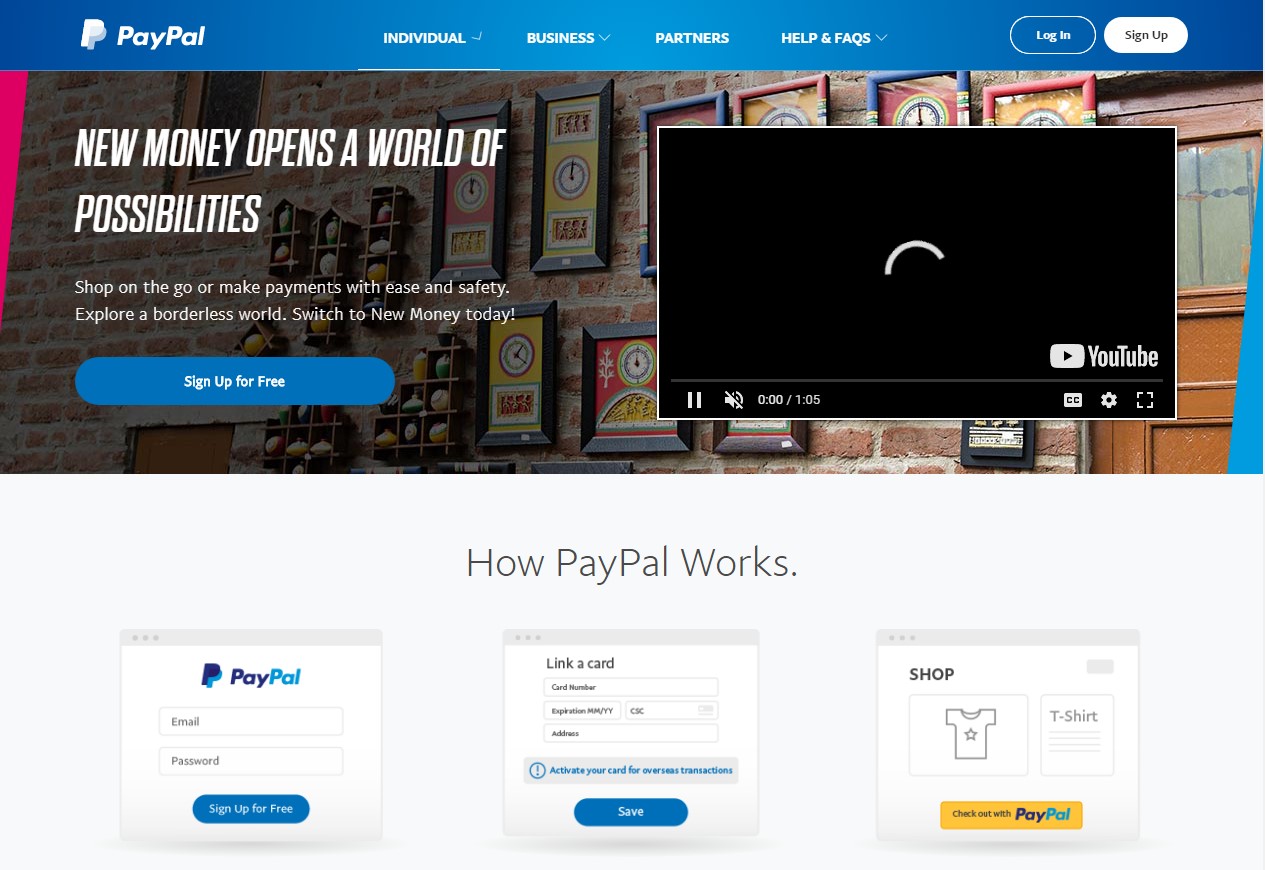.NET Core: 20 Advantages of Building Your Software in ASP.NET Core
Microsoft has now launched Asp.NET Core as a high performance, open-source, modern, cloud-based framework to build enterprise applications.
Why use Node.js? A comprehensive guide to building an interactive and fully-featured web application from scratch with NodeJS.
Estimated reading time: 0 minutes
It’s a known fact that JavaScript’s contribution to web application development is immense, and node.js has been a part of the major revolution.
Since the time of its introduction JavaScript has always been a popular choice and it has surely brought a lot of changes, and the face of web development today is so much different because of it.
The things we are able to do on the web nowadays, with JS running on the server, as well as the browser, were only imaginary few years back, or we would’ve been stuck with environments like flash or java applets.
Node.js is an open source, cross-platform JavaScript run-time environment for executing JavaScript code server-side.
It shines in real-time web applications employing push technology over web sockets.
What’s so different about it?
Well, this is one of the most reliable tool to create real-time web applications, two way connections, where both the client and server can initiate communication which allows them to exchange date freely.
If you’re someone who would argue or read somewhere that, we’ve already had this in the form of flash and Java Applets, my friend you’ve got some wrong information.
They were just sandboxed environments using the web as a transport protocol to be delivered to the client. And on top of that, they were run in isolation and often operated over non – standard ports, which may have required extra permissions.
Because of all these advantages, building web applications using node.js has been a trend and an obvious choice in the technology stacks of many top rated companies.
Some of your favorite websites and services were developed using node.js, some of them are Uber, EBay, Linked in, PayPal and many more. We will discuss these examples in detail later in this article itself.
Learn about Our Web Application Development Services
The main reason for choosing node.js over others are mainly its advantages, which we will be discussing now.
Let’s take a look at 10 advantages of node.js.
It’s quite fast
The functions on node.js are impressively faster than their competition which makes it an ideal choice for web application development companies.
It runs on the V8 engine developed by Google that uses JavaScript into native machine code and operates at lightning speed.
It spares you from wasting time and efforts involved in forming separate threads and instead uses a single thread, that is, the event loop that takes care of all the asynchronous I/O operations.
Major web actions in the web applications including reading or writing the database, network connections or file system can be performed quickly with this suite.
Node.js is the reason behind the success of most of the companies building robust web applications in much lesser time than they usually do.
It does not slow the working process, rather helps the developers but they need to be careful while writing the codes.
Web app development companies have benefitted mostly with this feature, for example, linked in was first on Ruby on Rails but then they’ve opted for node.js as they wanted to refine the mobile traffic which helped them reduce the number of servers from 30 to 3.
This also made the application much smoother, companies like eBay and PayPal have also improved their response time by a huge margin.
Availability
The availability of JavaScript is everywhere, in the browser as well as server-side only because of node.js.
Node.js has the same functions be it on the server side or the browser side and it is very much flexible in usage.
If you a company questions the logic for the browser to be shifted on the server, it can consider node.js code migration.
Real-time Web Applications
Node.js is something which creates real-time web applications at a lightning speed.
Let me tell you this, the amount of time required to create a simple blog page in PHP is the time node.js would require to create a real-time web application.
Node.js is a clear winner with the best tool for developing web applications with its multi-user, real-time web apps like games and chat applications.
The event-driven architecture caters to both the client-side and the server-side that is written in JavaScript and thus the synchronization process is fast and orderly.
Easy Coding
Node.js allows developers to write code in C, C++, JavaScript for both the server and client which makes it convenient to transfer data between the server side and also the client side to coordinate the work simultaneously.
Meteor, a web application framework which is created using node.js support’s the same codebase for the client and the server.
For example, if a change has been made on the server side the changes instantly appear on the client and the web page that shows this data automatically makes the updates.
Node.js does all the needed changes of the development process and helps fast scalable network apps.
It solves all the database queries
The database queries for the new NoSQL databases like MongoDB, CouchDB have the JavaScript framework.
Developers need not modulate the syntax differences while uniting the node.js and NoSQL databases.
As mentioned above node.js wins the real-time web apps as the JSON stored data format enables it to run without any obstacles in data conversion and mismatches, unlike Ruby on Rails for PHP that needs the same format from JSON to binary models.
Dynamic NPM
Node.js has a very dynamic repository of dynamic tools and modules that programmers can share for app development.
It has thousands and thousands of modules which a developer can use for various types of tasks, like file upload management, connectivity to MySQL databases or to Redis, via frameworks, template systems, and management of real-time communication with visitors.
Node.js is package manager or NPM is a messiah for many web app developers who need to reuse a code some JavaScript developer has created to solve a particular task or a problem,
Because NPM allows JS developers to download updates that are made to a particular code they have previously used in their applications, even if you don’t want to reuse a code created by a JS developer from outside your team of project or even your company, you can adapt the module-based approach to improve synergy between your team members.
After using NPM, many companies have witnessed a significant rise in the developer’s productivity.
Companies like PayPal and eBay especially where the time of transactions have reduced by a fair bit.
Besides this, these companies never required as many developers as they used to be, because of node.js being adapted.
Best use of Proxy Server
It is indeed one of the top advantages of using node.js, it serves as a proxy server for services with different response times or for collecting data from multiple source points.
Let me help you understand a bit better.
A company has a server-side application that is meant to communicate with third party resources, collect data from different sources, or store images and videos to third-party cloud services.
Although the company can use dedicated servers, node.js is a better option in the event of the non-existent infrastructure of when a solution is needed for local development.
Rise in Productivity
All the node.js programs are crafted using JS which implies that the silos that were present between the frontend and the backend developers are split entirely which increases the effectiveness of the web development process at different enterprises.
Companies can combine the frontend and backend teams together into a single unit for smooth functioning by getting rid of the inter-silo dependencies.
As mentioned above PayPal is a perfect example.
Next level in Hosting
As node.js is gaining popularity among developers’ day by day, its hosting has gone a long way to become a big success.
PAAS (Platform as a service) service providers such as Heroku and modulus offer enough support to node deployments to a single command.
With node.js hosting, you can reduce page load time by a drastic mile and bring down the number of servers which host the application.
Community friendly
Besides its core competencies, node.js consists of a flourishing open source community that has delivered many outstanding modules, making the node.js applications shine all the more.
A popular one is a socket.io, a module to handle constant communication between the client and the server allowing the server to push real-time updates to clients.
It operates on the best technology used to form these links away from the developer, particularly for specific clients.
How does Node.js work?
Before Node.js was introduced computers were only able to manage one problem at a time where the CPU can only do one thing at a time. That was solved by multi-threading, allowing us to
That was solved by multi-threading, allowing us to multi-task with multiple threads on a single CPU.
To make it easy, if you have 10 threads going on, a CPU scheduler will split the CPU’s time evenly between all of them so they get equal time slices, say maybe in a second, each of the 10 threads would get 100 milliseconds.
It Switches between them all the time and while it’s pretty fast. The switching has a ton of overhead.
Let’s not get carried away here, it’s just an example of how node.js does the same in web app development.
Node.js is something which will help all the existing platforms to perform better by making them faster and more efficient, but also reducing the efforts needed by a development team.
It’s interesting how node.js works internally, when you compare to a traditional web-serving techniques where each connection spawns a new thread, taking up system RAM and eventually maxing out at the amount of RAM available, Node.js operates on single-thread, using non-blocking I/O calls, allowing it to support tens of thousands of concurrent connections.
It takes control of deciding what work needs to be done rather than having a schedule to figure out.
Rather than having a new thread gets created on each request, there is on the thread for every single request. When a new one comes in, it fires an event that runs some code. Similar to that of how jQuery works.
When you make a call to a database, for example, rather than a block until its return, you just run a call back function the call is complete.
The difference isn’t really being node.js itself, it is your code that ends up being different. It just heavily guides you into doing it the node.js way.
You could also do this in other languages, but if you ask me JavaScript syntax, and node’s framework is really good for it.
Okay, you’ve read a lot about node.js and its mostly positive, have you ever thought there could be drawbacks to this too?
Let me tell you what are the drawbacks of node.js.
Performance bottlenecks and design defects
There are the two most argued aspects of node.js programming, they are insufficiency with heavy computations and also callback hell.
Before we brag more about them, let me tell you what they are.
For some of you who know JavaScript is asynchronous by nature and has a non-blocking I/O model, as mentioned above. This means it can process several simple tasks queued in the background without blocking the main thread and do so quickly.
This means it can process several simple tasks queued in the background without blocking the main thread and do so quickly.
At the same time, node.js is a single threaded environment, which is often considered a serious drawback of the technology.
Indeed, in some cases, a CPU bound task can block the event loop resulting in seconds of delay for all the website users.
This represents a serious issue. That is why to avoid it, it Is recommended not to use node.js with heavy computations systems.
Due to its asynchronous nature, node.js relies heavily on callbacks, the function that run after each task in the queue is finished, keeping a number of queued tasks in the background, each with its call back, might result in the so-called “callback hell”, which directly impacts the quality code.
Immaturity of tooling
Even though the core node.js modules are quite stable and can be considered mature, there are many tools in the NPM registry which are either poor quality or not properly tested.
It’s advantage of having so many tools is its disadvantage.
Moreover, the registry itself isn’t structured well enough to offer the tools based on their rating or quality, hence it might be difficult to find the best solutions for your purposes without knowing what to look for.
The fact that the node.js ecosystem is the mostly open source, has an impact as well. While the quality of the core node.js technology is supervised by joyent and other major contributors, the rest of the tools might lack the quality and high coding standards set by global organizations.
Demand for node.js programmers
This may not be an issue with node.js itself but despite a common belief, not all JavaScript developers are node.js developers as well.
Mastering server side JavaScript programming requires a significant amount of effort and a certain background in backend development.
Due to such a steep learning curve, the number of node.js engineers is significantly lower that the total number of JavaScript developers.
As the hype over node.js continues to grow, the demand for experienced professionals in this field increases.
Despite all the defects node.js is still a great tool for web app development.
So where can I use node.js?
If there is a place where node.js is desperately needed, it will be on the server side web applications.
This is the node.js territory, node.js with express.js can also be used to create some of the classic web applications on the server-side.
However, while possible, this request response paradigm in which node.js would be carrying around rendered HTML is not the most typical use-case. There are many arguments on this on various forums
But here are some facts you need to consider.
• If your app doesn’t have any CPU intensive computation, you can build it in a JavaScript top to bottom, even down to the database level if you use JSON storage object database like MongoDB. This will definitely help in your development.
• Crawlers will receive a fully rendered HTML response, which is far more SEO-friendly than, a single page web application or a websockets app run on node.js
Where node.js shouldn’t be used?
This might surprise you a bit, you need to read the whole sentence before you misunderstand it.
Node.js shouldn’t be used on the Server-side web application with a relational database behind.
If you compare node.js with express.js against ruby on rails, for example, there is a clean decision in favor of the later when it comes to relational data access.
The relational database tools for node.js are still in their early stages; they’re rather immature and not as pleasant to work with. On the other hand, Rails automagically provides data access setup right out of the box together with database schema migrations support tools.
What all websites were built using node.js?
There are many amazing website or web applications built on node.js, starting with the most popular web application
PayPal
Most of us have used this atleast once, PayPal is one the earliest internet corporations.
It still is one of the most reliable source for purchasing over the internet, and anyone can have a PayPal account.
It’s been almost a couple of decades that PayPal has been on the internet and it has definitely reinvented itself with the upgrade given by node.js.

Yahoo!
Yahoo, brings back so many memories!
It’s a 40 billion market valued tech behemoth, has been using node.js for years now.
Yahoo uses node.js In many of its web services and web applications which include Yahoo answers and Yahoo Screen.

Groupon
Groupon was the website which helped many of us save a lot of cash, with its amazing deals!
One of the best e-commerce websites out there which provides anything you can ask for.
Launched in 2011, was actually built on node.js unlike PayPal which upgraded to node.js.

Wall Street Journal online
One of the most popular American daily news website and also a paper. With special prominence on Business and economic news.
According to one of their engineers, node.js has actually reinvented the way their website works. They believe it does wonders for them, the critical functionalities which earlier took weeks took only days with node.js.

Shutterstock
Shutter stock is one of the best photography website, where you could download some of the best images on various different topics. Not everything is for free though!
If you need some amazing pictures for your website or a blog or a project, this is the place you need to visit.
Guess what? it’s built on node.js.

There are many cool websites like these built on node.js, I guess this explains why it’s the most popular choice for the web application developers.
Conclusion
We have discussed all the aspects of node.js and it’s clearly a winner over its competition and also a great choice for building a web application, web application with node.js should be a chosen when you think its advantages will be your advantage and it can be the ideal choice for your web application.
If your choosing node.js just for the sake of its popularity, I would suggest you to reconsider.
We have already discussed its strengths and weaknesses, so before you start your own node.js web app you need to recheck how it’s strengths would help your web app.
If you already have a plan on having your own web application on node.js, I would recommend you to contact NMG. They have a ton of web applications under their belt and a bunch of talented developers who could help you get your own node.js web app.
Microsoft has now launched Asp.NET Core as a high performance, open-source, modern, cloud-based framework to build enterprise applications.
Creating & editing content is critical to building and retaining an app audience. Find out how to improve your content strategy building mobile apps.
NEW MEDIA GURU (NMG) has a dedicated Open Source competency center (OSCC) . Open source is the platform of choice for digital agencies around the...
Be the first to know about new B2B SaaS Marketing insights to build or refine your marketing function with the tools and knowledge of today’s industry.